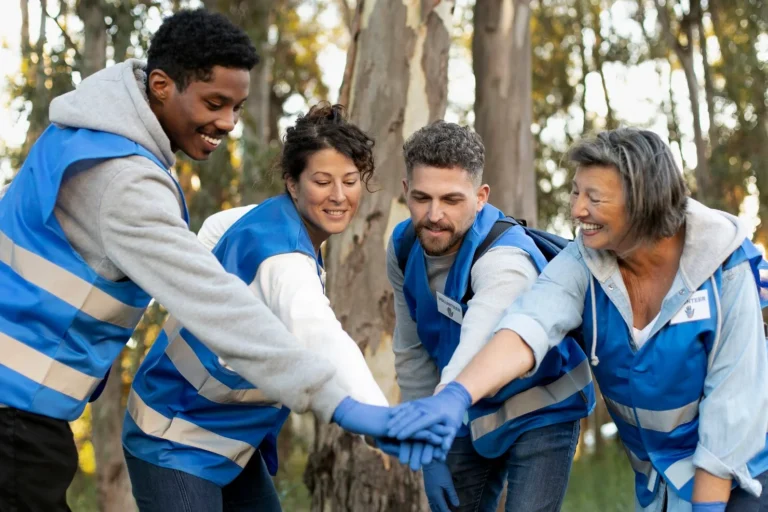Table of Contents
- What is a Community Support Group?
- The Benefits of Joining a Support Group
- The Role of Professional Guidance
- Impact of Personal Stories
- How to Find the Right Support Group
- The Role of Technology in Support Groups
- Overcoming Common Challenges
- The Importance of Ongoing Commitment
What is a Community Support Group?
Community support groups are gatherings where members share experiences, offer encouragement, and provide mutual support. These groups often focus on a particular issue, such as addiction, mental health, or coping with a major life change. For those seeking assistance in battling addiction, resources like AA classes near me can be instrumental. The communal nature of these groups helps foster a supportive environment where participants can grow together.
Contrary to popular belief, the strength of a community support group lies in its collective wisdom and shared experiences. Members gather for various reasons, bringing diverse perspectives that enrich the group’s overall knowledge. Whether learning new coping strategies or gaining different viewpoints, the collaborative atmosphere encourages personal growth and mutual support.
The Benefits of Joining a Support Group
Joining a support group offers myriad benefits, from emotional support to practical advice. Research has shown that having a strong network can significantly improve mental and emotional well-being. Furthermore, support groups provide a safe space to discuss struggles that participants may not feel comfortable sharing elsewhere.
Emotional Benefits
One of the primary benefits of joining a support group is the sense of belonging it provides. Being part of a community where everyone is going through similar struggles can be incredibly comforting and reassuring. This sense of connection can alleviate feelings of isolation and loneliness, which are common among individuals in challenging situations.
Practical Advice
Alongside emotional support, members also offer practical advice from personal experiences. This could range from strategies for managing anxiety to tips for maintaining sobriety during challenging times. The practical wisdom shared within these groups can be invaluable, offering actionable daily steps that members can implement to improve their well-being.
The Role of Professional Guidance
While peer support is crucial, the role of professional guidance should not be underestimated. Many community support groups are facilitated by trained professionals who can offer valuable insights and practical tools for coping. This professional oversight ensures the group remains a safe and supportive environment for all members.
Professional facilitators bring a wealth of knowledge and experience to the table, helping to address issues more effectively and educate members on coping mechanisms they might not encounter otherwise. Their expertise can be especially beneficial for navigating complex issues and providing structured support tailored to the group’s needs.
Impact of Personal Stories
One of the most compelling elements of community support groups is sharing personal stories. Hearing firsthand accounts of struggles and triumphs can be incredibly motivating and inspiring. These stories not only build camaraderie but also remind us that members are not alone in their journey.
Personal stories create a powerful connection among group members. When someone shares their experiences, it often resonates with others who have faced similar challenges. This shared understanding fosters empathy and support, providing a sense of solidarity and reinforcing the group’s collective strength.
How to Find the Right Support Group
Finding the right support group can be daunting, but there are numerous resources available. Websites, community centers, and healthcare providers often have listings of local support groups. It’s important to find a group that aligns with your specific needs and values.
When searching for the right group, consider its focus, meeting times, and the dynamic between its members. Don’t hesitate to visit multiple groups to find one that feels comfortable and supportive. Ultimately, the right fit can make a substantial difference in the effectiveness of the support received.
The Role of Technology in Support Groups
Technology has revolutionized the way support groups operate. Online forums, social media groups, and dedicated apps have made finding and joining support communities easier. For example, online support groups enable individuals to connect with others from the comfort of their homes, making support more accessible than ever before.
Virtual meetings and online platforms allow for greater flexibility in time and location, making it more convenient for individuals with busy schedules or those living in remote areas to participate in support groups. Moreover, the anonymity offered by online groups can provide additional comfort for those who might feel self-conscious about attending in-person meetings.
Overcoming Common Challenges
Joining a support group isn’t always smooth sailing. Common challenges include finding the right group, feeling comfortable sharing personal experiences, and committing to regular attendance. However, these challenges can be overcome with persistence and the right approach, leading to a rewarding and supportive experience.
It’s essential to remember that overcoming these initial hurdles is often worth the effort. The long-term benefits of being part of a supportive community far outweigh the short-term challenges. Adapting to a new environment and gaining consistency take time, but the sense of accomplishment and support make the journey worthwhile.
The Importance of Ongoing Commitment
The importance of ongoing commitment cannot be overstated. Regular participation in a support group can lead to long-term benefits, such as sustained motivation, continuous learning, and lasting relationships. These groups’ ongoing nature helps individuals stay committed to their journey and provides continuous support.
Being consistent with attendance and actively participating in discussions can help cultivate a sense of responsibility and accountability, both of which are critical for lasting recovery. Members frequently establish close relationships and gain a deeper comprehension of their problems and the solutions required through continuous involvement.

